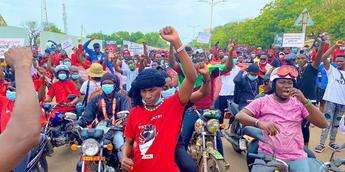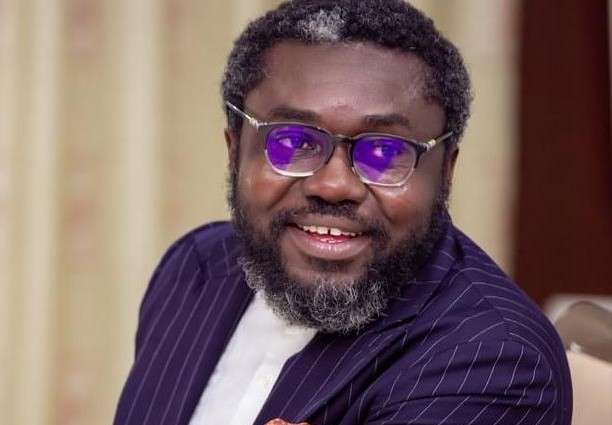The call for constitutional reforms in Ghana is not new. For decades, constitutional and governance activists, as well as several civil society organizations, have continuously underscored the urgent need for a comprehensive overhaul of the country’s governance framework.
This discourse has remained a staple in public debate, gaining renewed momentum in the lead-up to the 2024 elections.
Both the National Democratic Congress (NDC) and the New Patriotic Party (NPP) have acknowledged the necessity of constitutional reforms in their manifestoes, signalling the height of these calls and the overwhelming consensus that the current framework is failing to meet the country’s developmental needs.
Osagyefo Mawuse Oliver Barker-Vormawor, a Constitutional Rights, Governance, and Policy Adviser and Convener of the #FIXTheCountry Movement, in a recent statement, underscored the critical need for these long-standing calls for reform.
He expressed deep dissatisfaction with Ghana’s current governance structure, particularly the limitations imposed by the 1992 Constitution, which he argued has become an impediment to local development and socioeconomic progress.
Oliver Barker-Vormawor’s criticism of the 1992 Constitution stems from what he perceives as its flawed allocation of resources, which severely undermines local development.
“I think we are retrogressing as a country. When you think about the fact that so many young people are now more unemployed than when Rawlings staged the coup in 1981. There are so many people at or below the poverty line today compared to 1981.
“It doesn’t make sense to me that, if all development is local, our constitution prescribes that only 5% of our resources should be sent down to the districts for development while 95% is kept for Accra politicians to misuse”.
Osagyefo Mawuse Oliver Barker-Vormawor,
This disproportionate distribution of resources, he argued, further entrenches inequality and stifles grassroots development.
Superficial Changes Won’t Cut It
His call for reforms, however, goes beyond mere textual changes. He argued that the piecemeal approach, often favored in discussions around constitutional amendments, is insufficient.
“Sometimes when we talk about constitutional reform, people say, let’s decouple the Minister of Justice from the Attorney General, but these are superficial and non-committal changes. We need to redefine and re-engage the basis of our society”.
Osagyefo Mawuse Oliver Barker-Vormawor
Oliver Barker-Vormawor, who served as a researcher for Ghana’s 2010/11 Constitution Review Commission, emphasized that Ghana’s governance challenges cannot be addressed through minor adjustments.
“Because we want to prevent the ‘catch and go’ approach, we need to open up the entirety of the document for a genuine constitutional conversation across the country”.
Osagyefo Mawuse Oliver Barker-Vormawor
His argument is rooted in the work of the Constitutional Review Commission, which recommended nearly 300 changes to the 1992 Constitution—almost a complete rewrite of the document in its 1,000-page report.

According to him, addressing Ghana’s governance problems requires a fundamental reevaluation of the entire constitutional framework, not superficial changes like tweaking punctuation or altering administrative titles.
Oliver Barker-Vormawor challenged what he deemed as the status quo, urging Ghanaians to shift from token reforms to a more holistic and meaningful process.
“I always challenge those who believe a piecemeal approach will work. Show us evidence of the piecemeal approach you have used. For how many years have we had this conversation, from the beginning of the republic?
“People have always wanted to reform the constitution. But we haven’t even changed the word ‘the’ for those who support a piecemeal approach. If there are changes, people will believe the piecemeal approach is working”.
Osagyefo Mawuse Oliver Barker-Vormawor
National Cathedral Project: A Symbol of Misguided Priorities
His frustrations also extended to the controversial National Cathedral project, which has come under intense scrutiny in recent times.
“Why wouldn’t they engage in pet projects like the National Cathedral, which has turned into a swimming pool and a laughing stock? For me, the vast majority of resources ought to be committed to areas beyond Accra”.
Osagyefo Mawuse Oliver Barker-Vormawor
He vehemently criticized the allocation of resources toward what he sees as non-priority ventures that have little impact on the broader population.
A Coup of the Mindset
In his broader vision for the country, Oliver Barker-Vormawor called for a “different kind of coup,” a coup of mindset and national consciousness, rather than the violent overthrows that have punctuated Ghana’s political history.
“I’ve always been very thirsty for a coup, but not the kind of coup you’re thinking of. It has to be a different kind of coup, a change in mindset,” he clarified.
His statement reflected a desire for a paradigm shift in how governance is perceived and practised, moving away from entrenched political stagnation toward a more dynamic, participatory, and democratic system.
Central to his advocacy is the role of citizen engagement and protest in preserving and advancing democracy. Reflecting on the impact of the #FIXTheCountry Movement, Barker-Vormawor noted that citizen-led activism has been pivotal in keeping Ghana’s democratic framework alive.
“The physical country, more than any social group in the last few years, has done more to keep our democracy going than anything else,” he stated.
He underscored the difficulty and personal sacrifice involved in public protest, noting that such actions are often a reflection of deep-seated frustration and a desperate call for change.
In reaffirming the long-standing calls for constitutional reform, Oliver Barker-Vormawor’s advocacy highlights the growing frustration among citizens with the current governance structure.
His critique resonates with broader concerns that the country’s developmental aspirations continue to be held back by an outdated and ineffective constitution.
The heightened focus on governance and constitutional reforms from both the NDC and NPP ahead of the 2024 general elections offers a glimmer of hope, but the real challenge will be in moving beyond rhetoric to actual, far-reaching changes.
READ ALSO: The Rise of Side Chick Culture in Ghana: A Closer Look at Divorce, Relationships




















